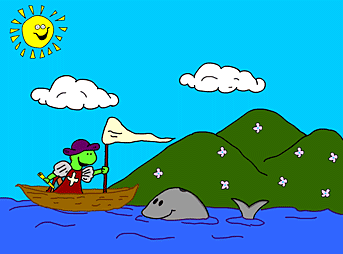
Unsplash

Viernes, 21 de febrero, 2025.
Aprender el español como lengua materna fue un proceso natural, casi inconsciente, que se construyó con cada conversación familiar, cada historia contada antes de dormir y cada palabra descubierta en los libros de la infancia. Al principio, el idioma era solo un medio de comunicación, pero con el tiempo se convirtió en una identidad, en una forma de ver, entender y explorar el entorno.

Tenor
La escuela reforzó la estructura y las reglas que antes solo se intuían. Fue allí donde el español dejó de ser solo un sonido cotidiano para transformarse en una herramienta con normas, excepciones y matices. Aprender a escribir correctamente, descubrir la riqueza de los sinónimos, la musicalidad de los poemas y la profundidad de la literatura fue como abrir una puerta a un universo infinito dentro de mi propio idioma. Con cada lectura y cada dictado, el español se volvía más mío, más cercano, más complejo.
Pero el verdadero desafío no está solo en aprender español, sino en mantenerlo vivo en un planeta donde otras lenguas, especialmente el inglés, dominan los espacios tecnológicos, científicos y de entretenimiento. Vivimos rodeados de anglicismos, de expresiones prestadas, de una globalización que a veces amenaza con diluir la riqueza del idioma en una simplificación innecesaria. No se trata de rechazar otras lenguas, sino de recordar que el español tiene el poder y la flexibilidad para seguir evolucionando sin perder su esencia ni al escribir.

Tenor
Escribir con propiedad, leer con curiosidad, hablar con intención y redescubrir la belleza de las palabras que han sobrevivido siglos es la mejor manera de mantener viva una lengua que no solo comunica, sino que también construye historias, emociones y pensamientos.
El español nació como una lengua derivada del latín vulgar, evolucionando en la península ibérica a partir del contacto con lenguas prerromanas y otras influencias externas. Su consolidación como idioma comenzó en el Reino de Castilla, desde donde se expandió a medida que el poder castellano crecía. Sin embargo, su proyección más allá de la península comenzó con la unificación de los reinos de Castilla y Aragón en el siglo XV y se intensificó con la llegada de los españoles a América en 1492.

La conquista y colonización del Nuevo Mundo fueron los principales motores de la expansión del español. A medida que los exploradores y misioneros avanzaban por el continente, la lengua se imponía como vehículo de comunicación y administración, sin embargo, el proceso no fue uniforme ni inmediato. En muchas regiones, el español coexistió y se fusionó con lenguas indígenas, dando origen a un léxico enriquecido con palabras de origen náhuatl, quechua, guaraní y otras lenguas originarias.
Paralelamente, el español también llegó a Filipinas en el siglo XVI, donde se convirtió en la lengua de la administración colonial. Aunque su influencia fue menor en comparación con América, dejó una huella en el vocabulario del tagalo y otras lenguas locales. En África, la presencia española en Guinea Ecuatorial consolidó el idioma como lengua oficial, mientras que en Marruecos y el Sahara Occidental, el español tuvo un papel relevante, aunque sin alcanzar la misma difusión.
En la actualidad, el español no se ha transformado todavía en una de las lenguas más habladas del mundo, aunque haya expandido sus fronteras en América Latina, España, Guinea ecuatorial y comunidades hispanohablantes en Estados Unidos. Falta mucho para que exista una expansión que lo convierta en un idioma con alcance global en el ámbito digital, literario, cultural y económico, pero tampoco es que va a desaparecer hasta convertirse en una lengua muerta. El ascenso a que le den la importancia que se merece depende de nosotros, de quienes lo hablamos, de quienes, aunque sepan otros idiomas, sigan divulgándolo.

Tenor
En muchos espacios internacionales aún no se le da el reconocimiento que merece en comparación con otros idiomas como el inglés, el chino o el francés. Aquí en Colombia, y sé que en varios países latinoamericanos, aunque el español sea tan cotidiano, en las escuelas y universidades se le presta más énfasis al estudio de las lenguas extranjeras, olvidándose de la gramática general y las reglas básicas de ortografía de nuestro propio idioma.
Convertirnos en embajadores del español implica reconocer su valor como engrane dentro de las relaciones interpersonales, lo sabemos, pero en muchas instituciones y foros internacionales el español sigue ocupando un lugar secundario, lo que limita su presencia en la toma de decisiones globales. La presencia del español en la producción científica y en la innovación tecnológica sigue siendo menor en comparación con el inglés por el mismo hecho de tener una proyección local, que no trasciende.
El cine, la literatura y la música en español han sido claves en su difusión internacional, pero todavía es necesario un esfuerzo mayor para posicionar el idioma como una referencia cultural de primer nivel. La literatura hispanoamericana y española ha dado grandes nombres a la historia de las letras, y su promoción fuera del mundo hispanohablante contribuiría a fortalecer el idioma como una herramienta de expresión universal, por eso, creo que darle la importancia que merece no significa desplazar otros idiomas, sino reconocer su peso histórico y su impacto en el presente y el futuro.
Considero que más que una herramienta y parte de mi identidad cultural, el español es un puente que me conecta con millones de personas que también lo hablan, que, a pesar de las jergas diferentes de cada región, nos vuelve de cierta manera hermanos de la misma galaxia, aunque quienes están aprendiendo, dicen que es difícil hablar el español Jajaja.
Esta fue una publicación de viernes.
Gracias por pasarse a leer un rato, amigas, amigos, amigues de Blurt.
Que tengan un excelente día y que Dios los bendiga grandemente.
Saludines, camaradas blurtinenses!!

Friday, february 21, 2025.
Learning Spanish as a mother tongue was a natural, almost unconscious process that was built with every family conversation, every story told before bedtime, and every word discovered in childhood books. At first, language was just a means of communication, but over time it became an identity, a way of seeing, understanding, and exploring the environment.

Tenor
School reinforced the structure and rules that were previously only hinted at. It was there that Spanish stopped being just an everyday sound to become a tool with rules, exceptions and nuances. Learning to write correctly, discovering the richness of synonyms, the musicality of poems and the depth of literature was like opening a door to an infinite universe within my own language. With each reading and each dictation, Spanish became more mine, closer, more complex.
But the real challenge is not only in learning Spanish, but in keeping it alive on a planet where other languages, especially English, dominate the technological, scientific and entertainment spaces. We live surrounded by anglicisms, borrowed expressions, a globalization that sometimes threatens to dilute the richness of the language in unnecessary simplification. It is not about rejecting other languages, but about remembering that Spanish has the power and flexibility to continue evolving without losing its essence even in writing.

Tenor
Writing with propriety, reading with curiosity, speaking with intention and rediscovering the beauty of words that have survived centuries is the best way to keep alive a language that not only communicates, but also builds stories, emotions and thoughts.
Spanish was born as a language derived from Vulgar Latin, evolving in the Iberian Peninsula from contact with pre-Roman languages and other external influences. Its consolidation as a language began in the Kingdom of Castile, from where it expanded as Castilian power grew. However, its projection beyond the peninsula began with the unification of the kingdoms of Castile and Aragon in the 15th century and intensified with the arrival of the Spanish in America in 1492.

The conquest and colonization of the New World were the main drivers of the expansion of Spanish. As explorers and missionaries advanced across the continent, the language became established as a vehicle for communication and administration, but the process was neither uniform nor immediate. In many regions, Spanish coexisted and merged with indigenous languages, giving rise to a lexicon enriched with words of Nahuatl, Quechua, Guaraní and other native languages.
At the same time, Spanish also reached the Philippines in the 16th century, where it became the language of colonial administration. Although its influence was lesser compared to America, it left a mark on the vocabulary of Tagalog and other local languages. In Africa, the Spanish presence in Equatorial Guinea consolidated the language as an official language, while in Morocco and Western Sahara, Spanish played a relevant role, although without achieving the same diffusion.
Today, Spanish has not yet become one of the most widely spoken languages in the world, even though it has expanded its borders in Latin America, Spain, Equatorial Guinea and Spanish-speaking communities in the United States. There is still a long way to go before it expands into a language with global reach in the digital, literary, cultural and economic spheres, but it is not going to disappear and become a dead language. The rise to the importance it deserves depends on us, on those who speak it, on those who, even if they know other languages, continue to spread it.

Tenor
In many international spaces, Spanish is still not given the recognition it deserves compared to other languages such as English, Chinese or French. Here in Colombia, and I know that in several Latin American countries, although Spanish is so common, in schools and universities more emphasis is placed on the study of foreign languages, forgetting the general grammar and basic spelling rules of our own language.
Becoming ambassadors of Spanish implies recognizing its value as a cog in interpersonal relationships, we know this, but in many international institutions and forums Spanish continues to occupy a secondary place, which limits its presence in global decision-making. The presence of Spanish in scientific production and technological innovation continues to be less compared to English due to the very fact that it has a local projection, which does not transcend.
Cinema, literature and music in Spanish have been key in its international diffusion, but a greater effort is still needed to position the language as a first-class cultural reference. Spanish and Hispanic American literature has given great names to the history of letters, and its promotion outside the Spanish-speaking world would contribute to strengthening the language as a tool of universal expression. Therefore, I believe that giving it the importance it deserves does not mean displacing other languages, but rather recognizing their historical weight and their impact on the present and the future.
I consider that more than a tool and part of my cultural identity, Spanish is a bridge that connects me with millions of people who also speak it, and that, despite the different slang of each region, makes us, in a certain way, brothers in the same galaxy, although those who are learning say that it is difficult to speak Spanish. Hahaha.
This was a friday post.
Thanks for stopping by to read for a while, Blurt friends.
Have a great day and may God bless you greatly.
Regards, comrades blurtarians!!
Translation: Deepl.com
